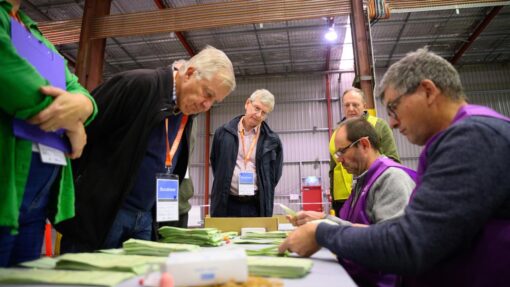Australia could double solar power by 2030, report says
Jennifer Dudley-Nicholson |

Solar power policies targeting new and existing homes, social housing and businesses could create a second renewable energy boom in Australia, a report has found, potentially doubling the nation’s solar capacity by 2030.
The Seize the Sun report, released by the Climate Council on Thursday, also recommended governments invest in more training to grow the energy workforce, including free vocational courses for electricians and gas fitters.
The report comes amid heated political debate over energy investments and days after the Smart Energy Council warned nuclear power could force the the shut down of rooftop solar power generation.
The Climate Council’s report identified 10 ways to boost Australia’s use of solar power, which currently leads the world.
More than 3.6 million homes have solar panels installed, the study found, but another 2.8 million households had yet to invest in the technology.
Nine in every 10 small businesses were also yet to install solar equipment, and two thirds of new houses were being built without a solar system.

If governments introduced financial assistance to help businesses and home owners overcome the initial cost of installing panels, including zero-interest loans, the study said Australia could more than double its rooftop solar capacity.
“Australia has the potential to add four million more rooftop solar systems this decade by making better use of available rooftop space on owner-occupied homes, social housing and businesses”.
Griffith University associate professor Tim Nelson, who is a member of the Climate Council, said the opportunity to build on Australia’s existing leadership in solar power should be a priority for all political parties.
“Rolling out more rooftop solar is the biggest opportunity we have right now to keep building on Australia’s clean energy momentum,” he said.
“It should be at the top of the agenda for all parties during the next term of parliament and we can get the ball rolling with clear commitments today.”
The Seize the Sun report also recommended governments invest in 5000 more community batteries to store solar energy, and support the installation of household batteries.
Investments in vocational training and facilities would also be needed, the report said, to upskill workers such as electricians, plumbers and gas fitters to play a role in the growing sector.
An accompanying poll of more than 1500 Australians conducted by YouGov found 73 per cent supported making solar power a standard feature on new homes, and 81 per cent of those using solar panels would recommend them to others.
Climate Council chief executive Amanda McKenzie said the survey results showed most people wanted to see greater support for renewable energy, particularly targeting households.
“Australians love the bill-busting benefits of rooftop solar and strongly support government action to expand it,” she said.
“All sides of politics should get behind rooftop solar in the run up to the next federal election.”
The solar study comes days after a report from the Smart Energy Council warned that investments in nuclear energy could see power generated by rooftop solar panels switched off to stabilise the grid.
AAP


